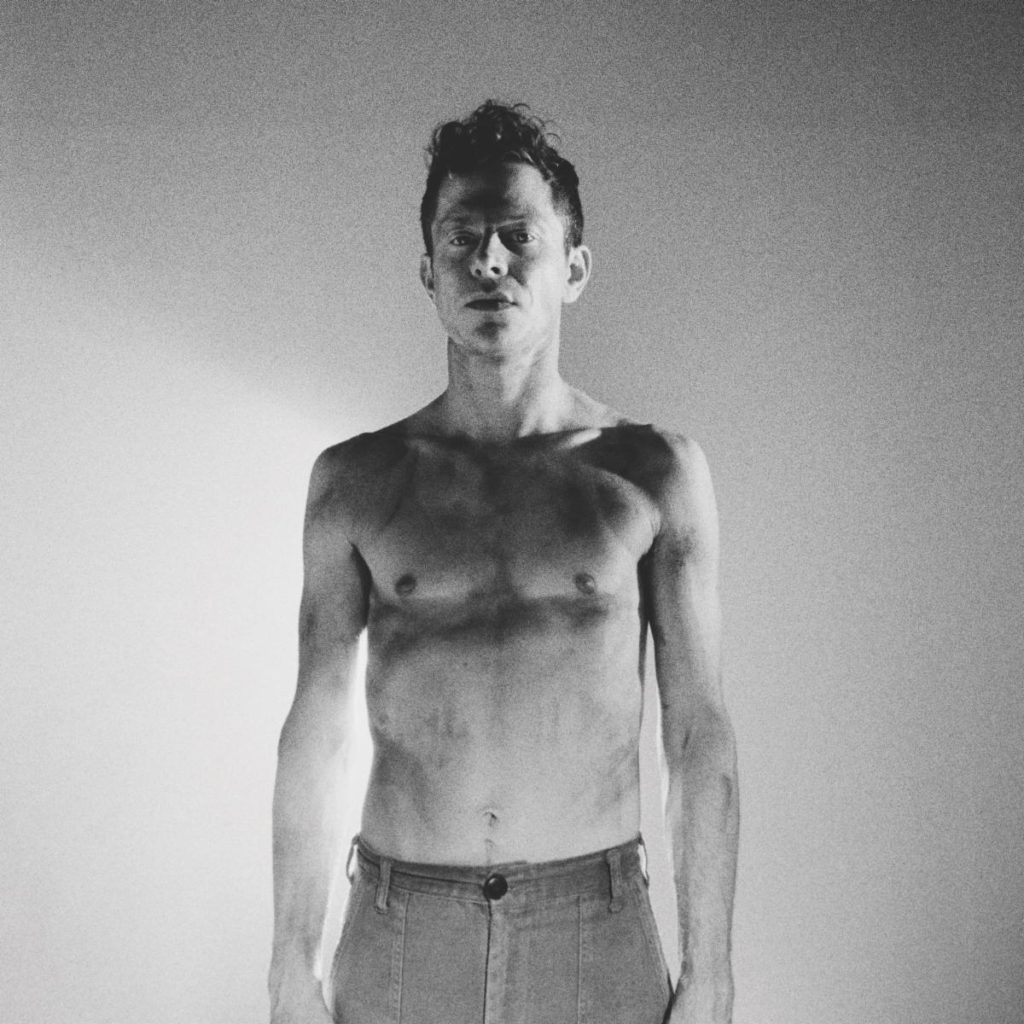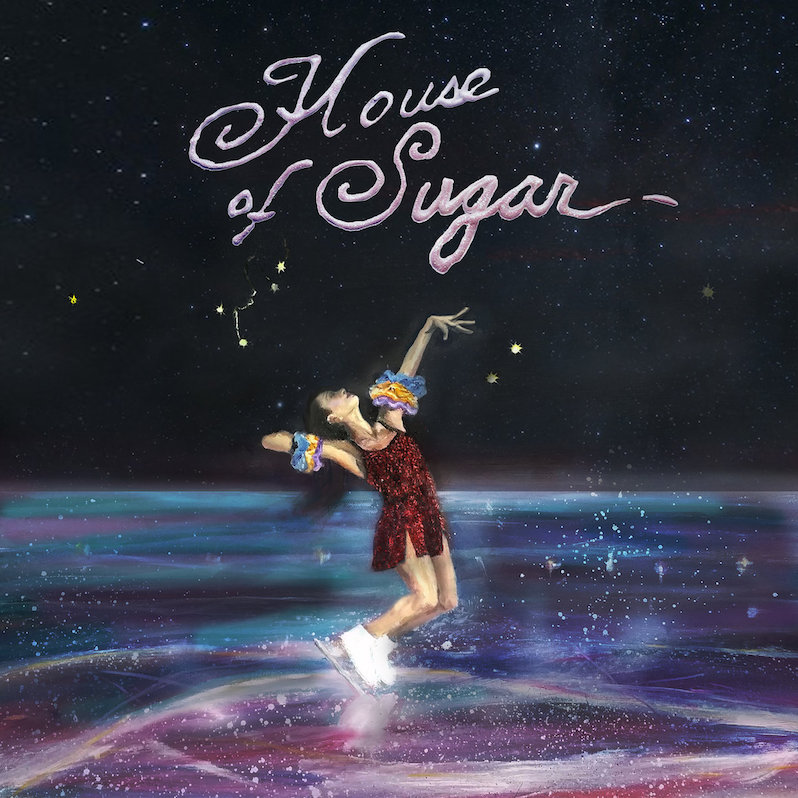Japanese Breakfast – Jubilee

On “Paprika,” the opening track of Japanese Breakfast’s Jubilee, Michelle Zauner asks, “How’s it feel to stand at the height of your powers/ to captivate every heart?” At this stage in her career, she should be able to answer that question with confidence. Her first two records as Japanese Breakfast, 2016’s critically acclaimed Psychopomp and 2017 follow-up Soft Sounds from Another Planet, endeared a legion of fans to her vulnerable songwriting and dreamy indie-pop sound. She followed those albums up not immediately with a set of new music, but with Crying in H Mart, a New York Times bestseller-list memoir that tenderly recollects her relationship with her late mother. Jubilee, her third full-length record, thrusts her further into the spotlight by her literary success with a set of songs, as she put it succinctly in a tweet, “about joy.”
In an interview with Rolling Stone, she described her desire to “go all out for it,” to flex each and every creative muscle she’s developed over the years. Zauner has emphasized that it’s different from her previous records, which were steeped in heartbreak and grief, and the shift is apparent immediately on leadoff track “Paprika.” “It’s a rush,” she sings, accompanied by a bright cascade of trumpets and saxophones. But it’s more than that—it’s overwhelming, absurd, and often lonely. After a gleaming chorus that channels a triumphant marching band, she admits, “alone it feels like dying/ all alone I feel so much.” Here, less than two minutes into Jubilee, it becomes clear that Zauner is uninterested in the lacquered facade of joy, in the redundant celebration of success. Instead, she bravely tackles the complex whole of it—exposing the difficulty and yearning hidden in a life that seems outwardly charmed, the visible seams that lend it coherence and shape.
The uncertainty that can afflict even the most loving, stable monogamous relationships is one such hairline fracture—an inevitable but seldom-discussed effect of tying oneself to another person, of committing to the pursuit of mutual happiness. Throughout Jubilee, Zauner plumbs this difficult topic, dredging up layered, pearlescent love songs that feel simultaneously heartsick and exultant. On “Posing in Bondage,” one of the most stunning singles released by any musician this year, she’s not singing about BDSM, but about “the bondage of controlled desire,” as told to Apple Music. “Closeness/proximity/I need it,” she repeats, over an ocean of low, mournful synths. Then, driving drums begin to cohere, and a jewel-toned marimba emerges. Zauner’s voice, processed and pitched as to seem nearly childlike, soars overhead, conveying resignation, longing, and yes, somehow joy. There’s a freedom and even an exhilaration that comes when you admit that you’re immobilized by need, when you’re honest with yourself about the conflicting desires that can churn beneath a vow to another person. “Posing in Bondage” captures this beautifully, framing the complexity of commitment as something to celebrate, not something to fear.
Zauner bravely investigates the fraught underside of love and longing, a trait she established early on in her career. But on Jubilee, she provides a contrast to these ideas by exploring new instrumental and collaborative possibilities. The album is full of warm horns and moving strings, elements that weren’t as present in her previous work. Zauner and longtime collaborator Craig Hendrix spent substantial time translating electronic demos into parts played by saxophonists and violinists, and those long hours paid off, bolstering a record that often feels more polished and orchestral than Psychopomp or Soft Sounds. Other musicians lent additional depth and perspective; Alex G co-produced the delightfully weird “Savage Good Boy,” a playful, sinister exploration of abundance and possession. And Crying’s Ryan Galloway, who teamed up with Zauner on the EP pop songs 2020, lent a series of intricate guitar riffs to “Slide Tackle.” Previously comforted by the insular back-and-forth she shared with Hendrix, Zauner invited a broader range of producers and musicians to help with Jubilee, feeling less intimidated after the success of Soft Sounds. Though she and Hendrix are capable of making phenomenal music on their own, expanding her cast of collaborators was a winning move and a mark of growth.
As Jubilee winds down, Zauner herself steals the show. On “Posing for Cars,” a six-minute thunderstorm of feeling, her songwriting is impeccable, deftly conveying a fundamental, permanent yearning—the kind of loneliness that’s audible over adoring crowds, that persists within the steadiest and most loving relationships. “I’m just a hollow root pushing through/ I’m just the empty space inside the room,” she sings, miles removed from the fanfare of “Paprika.” After a spare, slow buildup, the track blossoms into an aching, expansive guitar solo—the kind of devastating melody you might cry to during a solitary, late-night drive, away from a place you’ll never return to again. Zauner had planned to ask Meg Duffy of Hand Habits to close out the track, but instead opted to take on the challenge herself, intending to express “everything that can’t be said in the lyrics or in that moment out loud… through the guitar.”
In Jubilee’s final minutes, she does just that, delivering a solo that’s radioactive with longing, regret, nostalgia, and rage. Joy, too. The kind that sometimes thrums beneath tears; the wise, bird’s-eye type of gratitude you might feel when you’ve loved something hard enough to feel wrecked when it’s gone. This is the joy that fuels Jubilee—the kind that’s clawed for, hard-won, cherished in spite of complexity and confusion. To hear Zauner convey it with such clarity in both writing and song is to witness an artist at the height of her powers. What a gift it is to be able to hear it.
Label: Dead Oceans
Year: 2021
Similar Albums:
Clare Flanagan is a San Francisco-based writer specializing in music criticism and poetry. In her spare time, she enjoys reading, running, and listening to music of all genres at an unwise volume.




